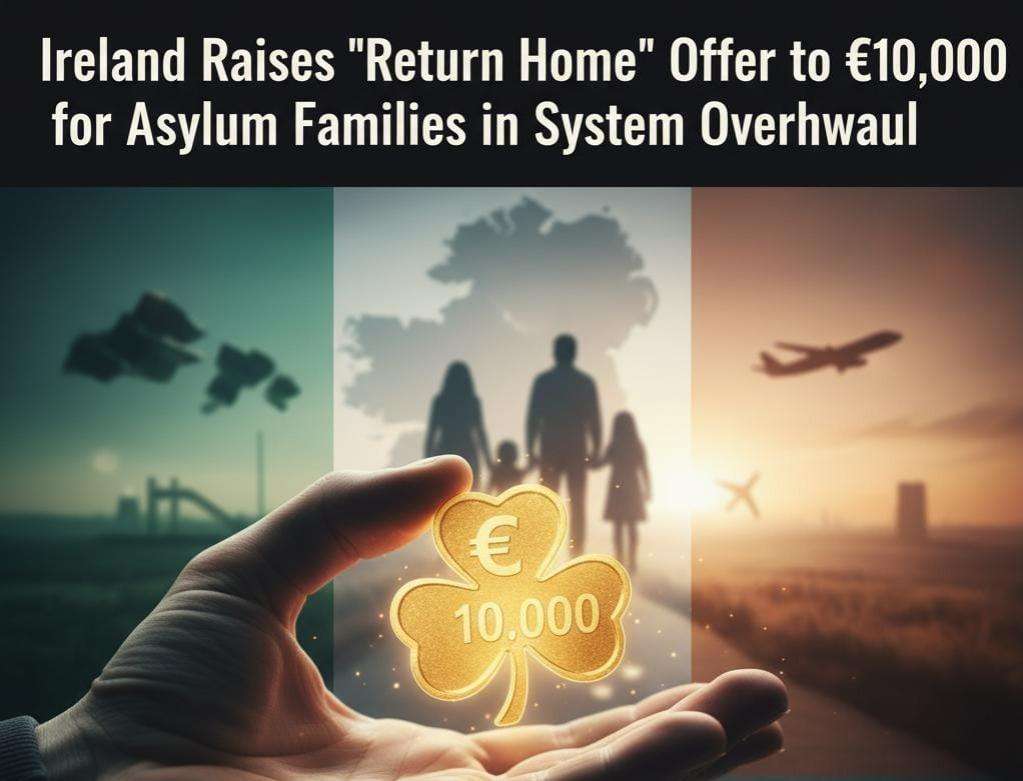The Irish government has significantly increased the financial incentive offered to asylum-seeking families who voluntarily withdraw their applications and return to their home countries. In a move aimed at easing severe pressure on the country’s overwhelmed international protection system, the maximum grant available to families has been dramatically raised to €10,000 (£8,722).
The new order, signed by Minister for Justice Jim O'Callaghan, will see the grant per person increase from the previous rate of €1,200 to €2,500. For a family, the maximum available payment will jump to €10,000 (up from a previous maximum of €2,000 for a couple or family). These higher grants are specifically available to those asylum seekers who were already in the international protection process before September 28, 2025.
Cost-Cutting and Efficiency Drive
Taoiseach Micheál Martin defended the policy shift, dismissing criticism from opposition parties like the Social Democrats—who labeled the move a "Right-wing dog whistle dressed up as efficiency"—as "excessive, extreme language" and "misplaced."
Mr. Martin argued that the enhanced grants "made sense" both for the individuals and for the Exchequer. The Department of Justice calculates that processing and accommodating a single asylum claim currently costs the state approximately €122,000 per person over the duration of the process, including accommodation and other associated costs. By offering a substantial, one-off payment for a voluntary return, the government seeks to pre-empt these long-term expenditures and free up essential housing resources. The grant is intended to help returning individuals and families re-establish themselves, access education, or set up small businesses in their home countries.
The updated figures already indicate the urgency of the situation and the effectiveness of the existing, less generous scheme: 1,159 people have already dropped their claims and left Ireland voluntarily by mid-September of this year—a sharp increase of 129 per cent on the same period in 2024.
System Strain and Political Tensions
Ireland continues to grapple with a chronic housing crisis and a massive backlog in its asylum system, a sharp contrast to its historical role as a country of emigration. In 2024, the country, with a population of only 5.3 million, recorded a record 18,560 asylum claims.
The surge in applications has put political pressure on the coalition government, with processing times for ordinary asylum procedures averaging 18 months in 2024. The government's focus on accelerating returns comes amid heightened public tensions, with Irish police having previously noted a rise in anti-migrant riots and arson attacks on asylum centres.
However, the enhanced financial offer has drawn ethical concerns. The Irish Refugee Council (IRC) expressed deep worry over the measure, arguing that it is "inappropriate to try and interfere with people's decision-making" in the international protection process. IRC Chief Executive Nick Henderson stated that the organization is "very concerned about anything that tries to coax or lure somebody to drop their application for asylum" with an enhanced payment.
The government maintains that the scheme is a humane and voluntary solution designed to alleviate pressure on both the applicants—who may otherwise face a deportation order and a lifetime EU travel ban—and the overloaded Irish system.







.svg)

_5.jpg)